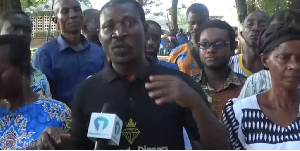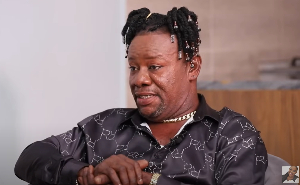Asesewa, June 30, GNA - The Upper Manya Krobo District Assembly received GHC 299,117.72 as its share of the District Assemblies' Common Fund for the first quarter of this year.
Mr Joseph Tetteh Angmor, District Chef Executive (DCE), disclosed this at the first ordinary meeting of the first session of the Assembly at Asesewa on Thursday.
Giving the breakdown, he said the final instalment of the third quarter of 2009 allocation received GHC 40,265.37, while the fourth quarter of 2010 allocation received GHC 241,425.80.
Mr Angmor indicated that even though the assembly was almost in the third quarter of 2011, the first quarter allocation for the year had not been received, a situation, which he said obviously threw their budget off board and derailed developmental agenda.
"This notwithstanding, we shall continue to undertake projects that are of prior importance to our people, with the little resources at our disposal, while we await this year's allocation which, hopefully would be released soon".
On Internal Generated Fund, Mr Angmor said the assembly estimated to collect a total of GHC 306,723.36 Internally Generate Revenue (IGR) for the year.
He said as at the end of the first quarter (January-March) the assembly was able to collect a total of GHC 51,766.90 representing 17 percent.
"This contrast sharply with the same period last year where a total of GHC 27,624.80 was collected as IGR which represented 10 percent of GHC 269,750.00 estimated for collection".
The DCE indicated that even though analysis showed consistent increase in revenue, 93we still think that we have the capacity to collect far more than what we are collecting now".
"Indeed, for us as an assembly we consider this performance as abysmal in view of the potentials of our markets. We are therefore putting in extra measures to ensure increased revenue".
"The first measure is the formation of a special task force to monitor revenue collectors and the collection process itself. Secondly, we intend to intensify our educational campaign on the need for people to pay taxes".
Mr Angmor said the assembly also intended to increase the collection of property rates and finally to rehabilitate markets and properly arrange the traders to make rates collection easier and orderly.
He said the assembly had identified the deplorable conditions in their markets as a contributory factor for the low revenue accruing to the assembly.
It had therefore decided to give a facelift of all major markets, namely, Asesewa, Sekesua and Akateng markets.
Regional News of Thursday, 30 June 2011
Source: GNA
















